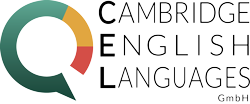IELTS Academic test
Information and registration
If you plan to study in higher education or seek professional registration in an English-speaking country, you might need to take an IELTS Academic test.
IELTS Academic test assesses your English-language proficiency at an academic level to determine whether you are ready to study at an undergraduate or post graduate level, or work in a professional setting, such as doctor, nurse, teacher or lawyer.
IELTS Academic Speaking
The IELTS Speaking is the same for both General Training test and Academic test and assesses your use of spoken English. All speaking tests are conducted face-to-face with a certified IELTS examiner and are recorded in case they need to be reviewed.
The Speaking test takes between 11 and 14 minutes and consists of 3 parts. Part 1 is the first part of the test where the examiner will ask you some general questions about familiar topics like work, family, studies and hobbies.
In Part 2 you will be given a card with a topic. You will be given one minute to take notes on the topic and will be given a pencil and paper to prepare your response. You will then speak on the topic for two minutes. In Part 3 of the interview, you will have a two-way discussion with the examiner where they will ask questions related to the topic discussed in Part 2.
The Speaking test is conducted on the same day as the other tests with our centre, unless otherwise agreed with a school or institution.
IELTS Academic Listening
The IELTS Listening is the same for both the IELTS Academic test and General Training test. The Listening test assesses your ability to understand main ideas, detailed information, opinions, purpose and attitudes of the speakers, as well as your ability to follow the development of ideas.
You will listen to 4 recordings in your Listening test and need to answer 40 questions based on these recordings. The first two recordings deal with situations you might experience in an everyday context. The last two recordings, however, focus on situations that might occur in an education or training context.
In recordings 1 and 3 you will hear a conversation between two or more speakers, however in recordings 2 and 4 will hear a monologue. You will need to answer questions connected to the recordings ranging from multiple choice to matching information, headings, features and sentence endings, as well as sentence, summary, note, table, diagram or flow-chart completion.
IELTS Academic Reading
The Academic Reading test assesses a wide range of reading skills including your ability to follow an argument, recognise a writer’s opinion, attitude or purpose. It looks at how well you can read to understand main ideas, details, opinions and implied meanings. Your reading comprehension skills are tested, covering skimming, scanning and reading for detail.
The Academic Reading test is made up of 3 long texts which are taken from current books, journals, magazines and newspapers. The texts are related to topics you might face if you were to study at an undergraduate or postgraduate level or apply for professional registration in an English-speaking environment.
You will have to answer 40 questions in the Academic Reading test. These questions can range from multiple choice to identifying information or a writer’s view, matching headings, features and sentence endings, as well as sentence, summary, note, table and flow-chart completions, and short-answer questions.
IELTS Academic Writing
The IELTS Academic Writing test is made up of two tasks, Writing Task 1 and Writing Task 2. The questions in the Academic Writing test are different to those in the General Training Writing test.
In Academic Writing Task 1, you will be shown a visual representation of information; a graph, table, chart or diagram, and you are asked to summarise, describe or explain the information you see. Make sure you organise your response into three main parts, the introduction, an overview and the main features supported by figures from the diagram.
In Academic Writing Task 2, you will be presented with a point of view, argument, or problem. The topics can range from the environment to immigration, culture, and even technology. You might be asked to, agree or disagree with a point of view or argument, discuss two opposing views, write about the advantages or disadvantages of a topic, or explain a given problem, or the cause of a problem and offer a solution. Your response for Academic Writing Task 2 will need to be in an essay format.


Get Social